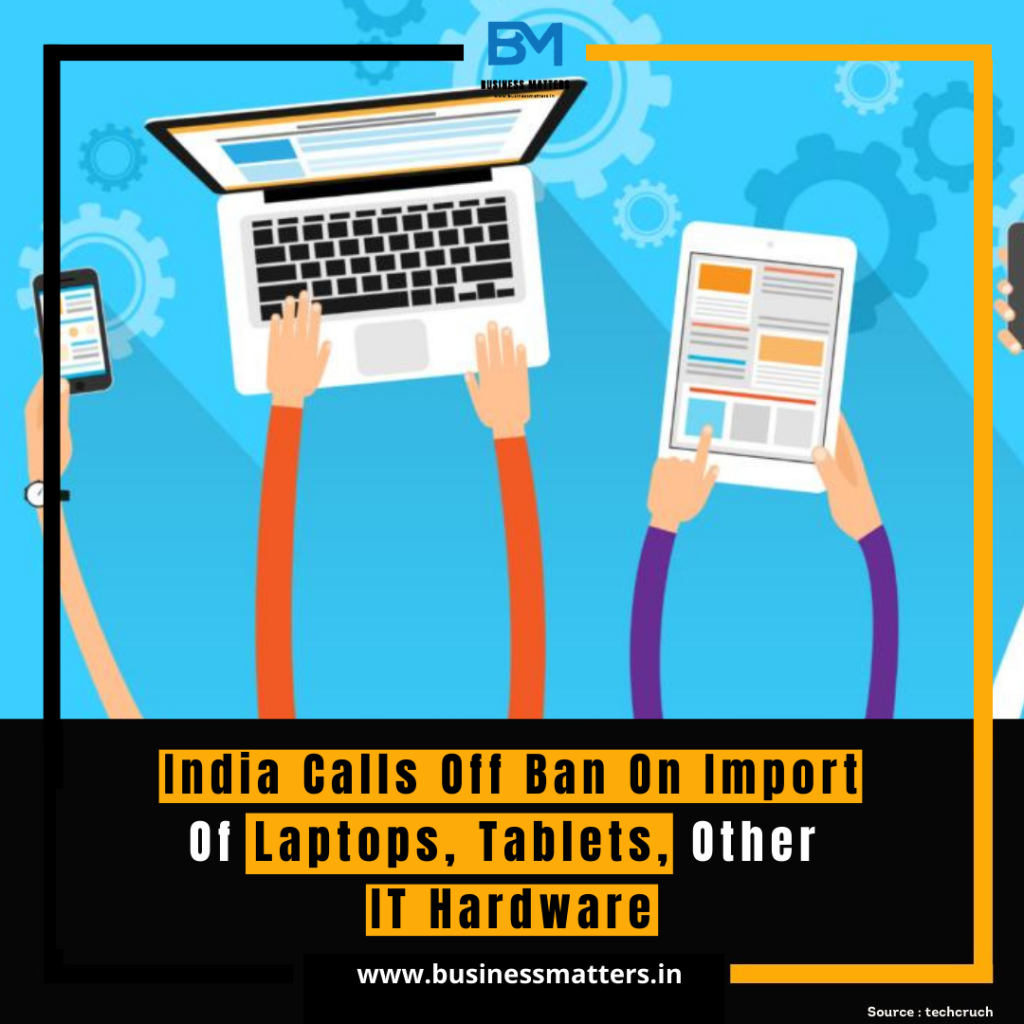
India Calls Off Ban on Import of Laptops, Tablets, and Other IT Hardware
In a significant reversal of its earlier decision, the Indian government has called off the ban on the import of laptops, tablets, and other IT hardware. The ban had sparked concerns among businesses, students, and the IT industry, and its removal comes as a relief to many who rely on these devices for work, education, and personal use.
Background:
The ban on the import of laptops, tablets, and certain other IT equipment was announced in July 2021 as part of a broader effort to promote domestic manufacturing and reduce dependence on foreign products. It was part of the “Atmanirbhar Bharat” (Self-Reliant India) initiative, which aimed to boost the Indian economy and create more local jobs.
Reasons for the Ban Reversal:
- Industry Pressure: The ban faced significant backlash from various quarters, including the IT industry, educational institutions, and businesses. They argued that the ban would disrupt operations, hinder online learning, and impact overall productivity.
- Supply Chain Issues: The ban led to supply chain disruptions for businesses that relied on imported IT hardware. Many companies were forced to seek alternatives or delay projects due to the unavailability of necessary equipment.
- Education Sector Concerns: With the COVID-19 pandemic driving the adoption of online learning, educational institutions expressed concerns about the ban’s impact on students who relied on laptops and tablets for remote education.
- Global Tech Firms: Global tech companies that operate in India also lobbied against the ban, highlighting the potential negative consequences for the tech ecosystem in the country.
- Economic Considerations: The ban’s potential impact on India’s economic growth and job creation was a key factor in reconsidering the decision. The IT hardware sector contributes significantly to India’s economy.
Government’s Response:
The Indian government responded to these concerns by revoking the ban on the import of laptops, tablets, and other IT hardware. This decision was widely welcomed by various stakeholders.
Impact and Implications:
- Relief for Businesses: Businesses that rely on imported IT hardware will now have access to the equipment they need without disruptions to their operations and projects.
- Education Sector: The reversal of the ban is a positive development for the education sector, as it ensures that students can continue their online learning without interruptions.
- Global Tech Companies: Tech giants that operate in India will also benefit from the ban’s removal, as it allows them to continue using the equipment and devices that are integral to their operations.
- Economic Growth: The decision aligns with India’s broader economic goals, as it supports growth in the IT hardware sector and contributes to the “Make in India” initiative.
- Domestic Manufacturing: While the ban’s removal is a positive step, it does not negate India’s push for domestic manufacturing. The government is likely to continue promoting local production while allowing for the import of certain items to meet demand.
- Regulatory Clarity: The reversal of the ban underscores the importance of clear and balanced regulations. It highlights the need for policies that encourage domestic manufacturing without adversely affecting industries and consumers.
Conclusion:
The decision to call off the ban on the import of laptops, tablets, and other IT hardware is a welcome move for businesses, educational institutions, and the IT industry. It strikes a balance between promoting domestic manufacturing and ensuring the availability of essential equipment. The reversal demonstrates the government’s responsiveness to industry concerns and the importance of considering the broader economic and educational implications of such policies. As India continues its journey toward self-reliance and economic growth, regulatory clarity and flexibility will be key in achieving these goals while maintaining a conducive business environment.

